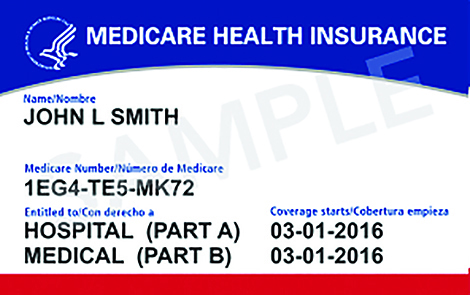SAVVY SENIOR
By Jim Miller
Dear Savvy Senior,
I’m planning to enroll in original Medicare and have been told I probably need to get a Medicare supplemental policy, too. Can you offer any tips on selecting one?
Almost 65
Dear Almost,
Getting a supplemental policy (also known as Medigap insurance) is a smart idea because it will help pay for things that aren’t covered by Medicare, like co-payments, co-insurance, and the Part A deductible. Here are some tips to help you choose an appropriate plan.
In all but three states (Massachusetts, Minnesota, and Wisconsin), Medigap plans, which are sold by private health insurers, are available to new enrollees in eight standardized plans. These plans are labeled with the letters A, B, D, G, K, L, M and N, with two more, C and F, that are only available to those eligible for Medicare before 2020.
Plan G is the most popular policy among new enrollees because it covers the most comprehensive range of benefits. Monthly premiums for Plan G typically range between $100 and $300, depending on your age and the state you reside in. If that’s more than you’re willing to pay, there are also high-deductible plans that have lower premiums but impose higher out-of-pocket costs.
For more information on the different types of plans and coverage details, go to Medicare.gov/publications and type in “choosing a medigap policy” in the Keyword box, and download their 2022 guide. Or call 1-800-MEDICARE and ask them to mail you a copy.
To pick a Medigap policy that works best for you, consider your health, family medical history, and your budget. The differences among plans can be small and rather confusing. To help you choose, visit Medicare.gov/medigap-supplemental-insurance-plans and type in your ZIP code. This will give you a list of the plans available in your area, their price ranges and the names, and contact information for companies that sell them. To get specific pricing information, you’ll need to contact the carriers directly or call your State Health Insurance Assistance Program. See ShipHelp.org or call 877-839-2675 for contact information.
Since all Medigap policies with the same letter must cover the exact same benefits (it’s required by law), you should shop for the cheapest policy. You’ll get the best price if you sign up within six months after enrolling in Medicare Part B. During this open-enrollment period, an insurer can’t refuse to sell you a policy or charge you more because of your health.
You also need to be aware of the pricing methods, which will affect your costs. Medigap policies are usually sold as either, “community-rated” where everyone in an area is charged the same premium regardless of age; “issue-age-rated,” based on your age when you buy the policy, but will only increase due to inflation, not age; and “attained-age-rated,” with low premiums that increase as you age. Community-rate and issue-age-rated policies are the best options because they will save you money in the long run.
You can buy the plan directly from an insurance company, or you can work with a reputable insurance broker.
Also:
- You also need to know that Medigap policies don’t cover prescription drugs, so if you don’t have drug coverage, you’ll need to buy a separate Medicare Part D drug plan, too. See Medicare.gov/plan-compare to compare plans. Also note that Medigap plans don’t cover vision, dental care, hearing aids, or long-term care.
- Instead of getting original Medicare, plus a Medigap policy and a separate Part D drug plan, you could sign up for a Medicare Advantage plan (medicare.gov/plan-compare) that provides all-in-one coverage. These plans, which are sold by insurance companies, are generally available through HMOs and PPOs that require you to get your care within a network of doctors.
Jim Miller is a contributor to the NBC-TV“Today”show and author of “The Savvy Senior” book. Send questions for him to Savvy Senior, P.O. Box 5443, Norman, OK 73070, or savvysenior.org.


